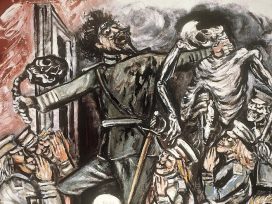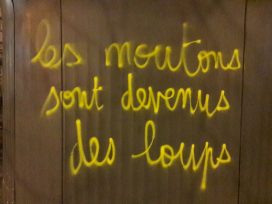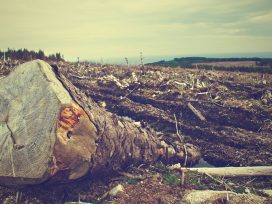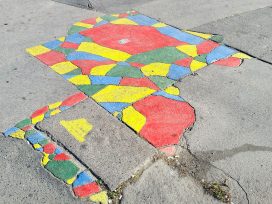A reductionist definition of democracy as ‘people power’ fails to grasp democracy’s political evolution as guarantee against tyranny. Giving a voice to the biosphere extends this principle and is not to negate democracy’s own conditions.
I thank James Miller for his commentary on my essay on the multiple pathways and tempos of democide. It is free-wheeling, opinionated, forceful and wild – in more ways than one, rather like the 6 January assault on the United States Congress that plenty of ‘fellow Americans’ (he daringly reports) saw as a legitimate revolt of ‘ordinary people’ and their ‘democratic idealism’ against a ‘distant fortress’ of government ruled by a corrupt elite of wealthy politicians.
Miller oddly pays no attention to the substance or significance of the essay’s attempt to think in fresh ways about how democracies are destroyed, or destroy themselves, in different tempos. He wants instead to quarrel about the meaning of ‘democracy’. So let’s hear what he has to say.
For Miller, democracy is dreaming ‘in the streets’. These words feature in the titles of his important studies of Rousseau and the people and ideas that shaped the New Left in America, and they reappear in his commentary. Democracy is ‘people power’, he says. For my taste, this ‘quintessentialist’ definition is much too simple, most obviously because it ignores the ways the democratic imaginary has substantially changed several times in its history. In my full-scale global history of democracy, The Life and Death of Democracy and, more recently, The Shortest History of Democracy, I underscore the significant differences between the way democracy has been imagined and practised differently in the age of assembly democracy, electoral democracy and monitory democracy. These paradigm shifts were accompanied by different ways of thinking and speaking, different institutions and different sets of conflicts and conflict resolution mechanisms. Miller seems uninterested in them – and uninterested in the intriguing ways democracy practically functions as a midwife of history by sensitizing people to the contingency and alterability of their everyday circumstances. For Miller, democracy is democracy is democracy, an unchanging commitment to a master subject-object called ‘people power’.
The reductionist, time-insensitive understanding of democracy helps explain his misunderstanding of my essay. I can assure him that its author is a militant democrat, not a wishy-washy ‘liberal’ who sides naïvely with ‘the virtues of moderation and knowing one’s limits.’ And at no point does my essay speak of ‘liberal democracy’. It’s not a phrase in my vocabulary. For several good reasons, it should be consigned to the Dictionary of Antiquarian Terms.
Those who speak of liberal democracy mistakenly suppose the primacy of ‘the individual’ in political life, even though in every existing democracy, including India, where the world’s largest democratic experiment is under mounting pressure, group affiliations based on class, caste, language, education, sexual preference and ethnic and religious identity, are far more important markers of people’s daily lives. Those who speak of ‘liberal democracy’ also ignore the decisive importance of the decade of the 1940s. The research I present in Power and Humility shows that that decade witnessed the birth of a new historical understanding of democracy as a necessary weapon against all forms of unaccountable, arbitrary power, including power exercised in the name of ‘the people’. Liberals played a role in that reimagining of democracy but there were many others – Christians, Buddhists, Muslims, socialists, humanists, communists, atheists – who ensured they had no monopoly over the birth of what I call monitory democracy. What’s more, especially in the US, the phrase ‘liberal democracy’ has degenerated into an ideological cliché. It has become a mantra used by politicians and journalists to celebrate an ailing American-style democracy within a declining empire which still fancies itself as the ‘indispensable nation’ (Madeleine Albright), the city on the hill that lights the way to the whole of humanity. There’s one other problem with talk of ‘liberal democracy’: as my teacher C.B. Macpherson long ago pointed out, it’s a phrase that hides its own self-contradictory dependence on the neo-liberal fetish of private property, the unjust extractive power of ‘free markets’ and the ethos of possessive individualism.My essay suggests ‘monitory democracy’ as a far more accurate and ecumenical phrase to make sense of how contemporary democracies function and, when they function well, why democracy is the most radical ideal of our age. Monitory democracy is much more than free and fair elections and public assemblies. It’s the non-stop, unending process of people and their chosen and trusted representatives warding off abusive power, protecting their lives as equals against all forms of unequal power relations with the help of bodies such as independent courts, uncorrupted election commissions, and civil society watchdogs like Amnesty International, Médecins Sans Frontières, Deforestation Inc and the International Consortium of Investigative Journalists.
Miller misses this point. He also ignores the threats posed to monitory democracy by the recent resurgence of populism. Miller admits in passing that ‘people power’ can ‘create perverse results’. But he’s reluctant to admit the inner affinities between ‘people power’ and populism and its twin, demagoguery. Is worrying our heads about populism as an auto-immune disease of democracy – as my essay sets out to do – a fruitless diversion? Long live people power is his cry. Miller quotes the young Marx on ‘the authentic spirit of “true democracy”’, but his reasoning is drawn straight from Jean-Jacques Rousseau. Since by definition ‘the people’ mustn’t be allowed to relinquish their sovereignty – for instance, by choosing governing representatives in a free and fair election and/or by siding with watchdog bodies dedicated to protecting them from abusive or neglectful power – ‘the democratic project in the modern world is inherently unstable.’ When ‘the people’ give themselves over to representatives, they feel powerless and pissed off. Talk of ‘people power’ sparks ‘efforts to re-assert the collective power of a people, sometimes through insurrections and revolts.’
These rebellions, Miller should have noted, but hasn’t, are the grazing grounds of power hungry demagogues performing theatrics in the name of ‘the people’. Episodes of populist demagoguery – my essay points out – have happened many times in the history of democracy. Examples include the frighteningly violent caudillo rule of General Juan Manuel de Rosas in Argentina in the late 1820s and early 1830s, fascist rule in Germany a century later and the recent public performances of populists in the mould of Jean-Luc Mélenchon (‘Je suis un homme du peuple’, ‘La République, c’est moi!’). These instances of populist demagoguery aren’t of interest to Miller, who supposes that ‘the people’ is a unified body that always acts on its own, never gets things wrong and usually does right because ‘the people’ know best what’s best for themselves. This is nonsense populist metaphysics. The masculinist aesthetics of the Street Fighting Man. Proud Boys politics.
As for my essay’s alleged sacralization of democracy, this assertion is plainly wrong. Miller thinks democracy is a good thing because it gives expression to ‘people power’. That’s of course a tautology, and an unhelpful and politically corrupting tautology at that. In various works, I’ve tried instead to explain that democracy, considered as an ethic of defining and handling power and as a whole way of life, has no need of sacred, foundational, timeless First Principles: God, History, Nation, Private Property, Market, Happiness, The People. It equally stands against bogus consequentialist claims, such as the belief that democracies are peace loving and never go to war with one another (false), or that democracy is better equipped to deliver economic innovation and growth (both false and ecologically objectionable). No, in our times the ideals of monitory democracy have no ‘totemic’ quality. They don’t suppose they enjoy a ‘monopoly on the rhetoric of democratic idealism’. But for new reasons, the norms of monitory democracy are in fact of global relevance – as applicable in Rwanda and Uruguay as they are in Europe and the US.
Why? Not because they are founded on sacred First Principles such as People Power but because democracy considered as a whole way of life is the indispensable precondition of freedom from First Principles. Democracy is a way of enabling a plurality of different forms of life to live together openly, non-violently and accountably, without any one form of life manipulating, bossing and bullying others into submission. Put simply, democracy is not an all-knowing and arrogant Ideology. It is its antidote. Or, to speak with a little help from Ludwig Wittgenstein’s Über Gewissheit (On Certainty): democracy provides comfort in the company of what’s often called nihilism. It’s a way for people to come to terms with the realization that there are no all-embracing criteria for assessing things and people in our world, standards to which we could appeal, with absolute certainty, with ‘complete conviction, the total absence of doubt.’ Democracy is a practical solution to the challenge of living with ‘the groundlessness of our believing.’
Seen in this revised way, as a mode of life backed not only by elections and public assemblies but also sets of institutions that sensitize and protect people against arbitrary, abusive power, democracy stands against all forms of power and knowledge on stilts. It has a punk quality. This is its truly radical potential: the defiant insistence that people’s lives are never fixed in stone, that all things human and nonhuman are built on the shifting sands of space-time, and that no person or group, no matter how much power they hold, can be trusted permanently, in any context, to govern the lives of others.
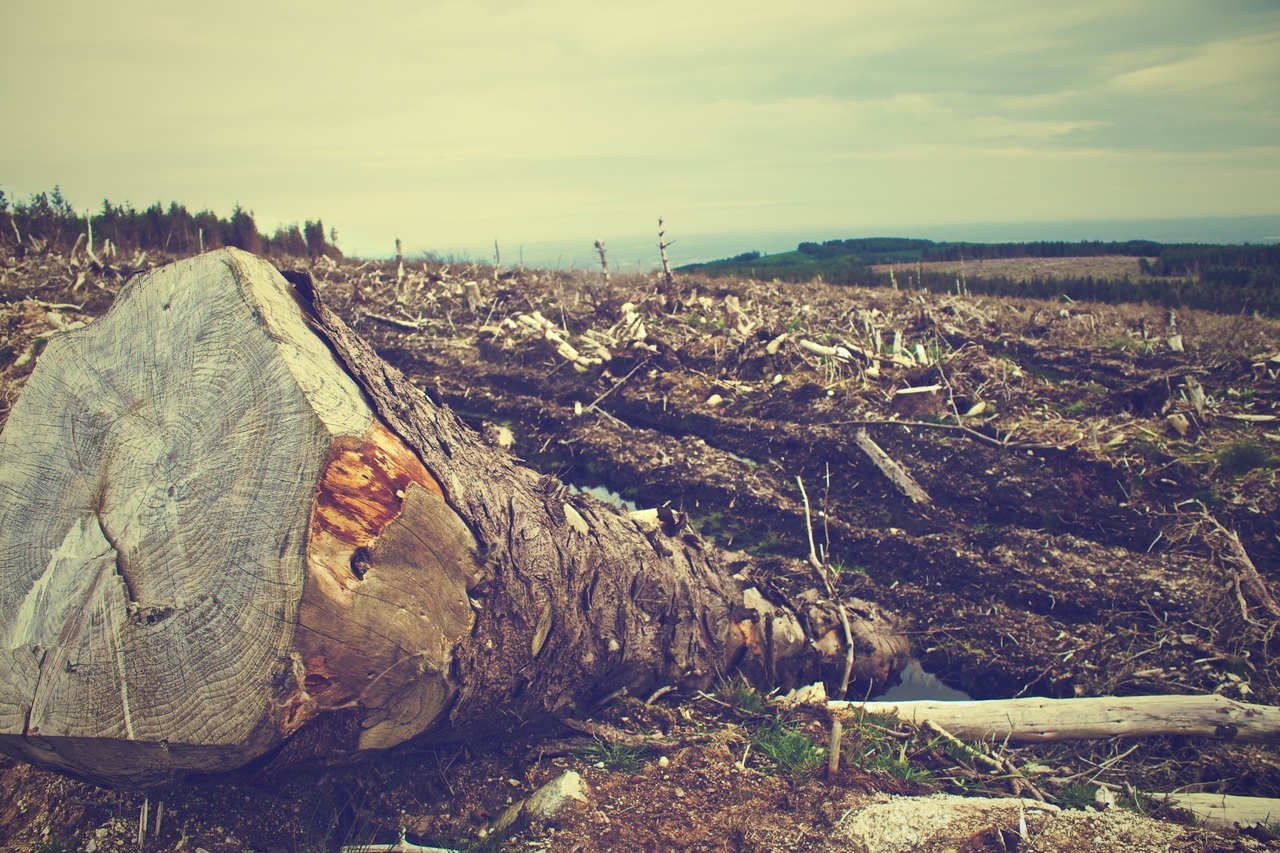
Image via PxHere
Democracy is thus a means of damage prevention. It’s an early warning mechanism, a way of enabling people and organizations to sound the alarm whenever they suspect that others – greedy banks, profit-hungry arms manufacturers, demagogues – are about to cause them harm, or when calamities are already bearing down on their heads.
Democracy supposes that a more equal world of well-being, openness and diversity is possible. It champions these ideals not because all women and men are ‘naturally’ equal, nor because some claim that they are anointed by God or the Party or a Demagogue to govern others. Democracy instead shows us that no man nor woman nor institution is perfect enough to rule unaccountably over people or the fragile lands and seas in which they dwell. It follows that democracy refuses to countenance and collaborate with the ongoing domination of the biomes in which flesh and blood people dwell. My essay notes that we’re living in an age when the principles and practices of democracy are for the first time in its history undergoing a ‘greening’.
Miller has trouble handling this unorthodox point. He seems to agree with my critique of democracy as ‘the most anthropocentric ideal ever conceived’. But the rest of his commentary loses its way. Is he making a case for clinging to ‘people power’ at the expense of ‘nature’, conceived as the inferior, non-human domain positioned well outside the lives of ‘the people’? Or is he saying that since ‘anthropocentrism really is an ethical mistake’, democracy as ‘people power’ should be ‘staunchly opposed’, because it is taking us to an environmental hell in a handbasket of false promises? His answers aren’t forthcoming. Readers are left none the wiser.
The confusion triggered by Miller’s own confusion is unfortunate and unwarranted. My essay does not say nor even hint that ecological crises are erasing the idea of democracy, ‘like a face drawn in sand at the edge of a rising sea’. It doesn’t rest content on the cavalier claim that ‘liberal democracies are up to the ecological challenge’. My essay instead makes a case for urgently redefining democracy, to rid it of its anthropocentrism by challenging the orthodoxy that ‘the people’ are the pinnacle of creation, lords and ladies of the universe, the rightful masters and possessors of ‘nature’ because they are the ultimate source of sovereign power and authority on Earth.
I noted, and elsewhere point out at length, that the age of monitory democracy has given birth to a myriad of watchdog platforms that grant a political voice to our biosphere. They reconnect the political and natural worlds. They bring the ideals and institutions of democracy back to Earth. They do more than urge humans to reimagine themselves as humble, fragile beings whose fate is deeply entangled with the ecosystems in which they dwell. They help us to redefine democracy as a precious mode of power sharing in which people and their habitats are given equal consideration and offered equal chances of protecting themselves against the predators now intent on ruining life on our planet.
This article continues The writing on the wall debate between Public Seminar’s James Miller (Bloodless democracy?), and John Keane (How democracies die, fast and slow).
Published 21 March 2023
Original in English
First published by Eurozine
© John Keane / Eurozine
PDF/PRINTIn collaboration with
In focal points
- Living dead democracy
- Why Parliaments?
- Spelling out a law for nature
- No more turning a blind eye
- The end of Tunisia’s spring?
- Protecting nature, empowering people
- Albania: Obstructed democracy
- Romania: Propaganda into votes
- The myth of sudden death
- Hungary: From housing justice to municipal opposition
Newsletter
Subscribe to know what’s worth thinking about.
Related Articles
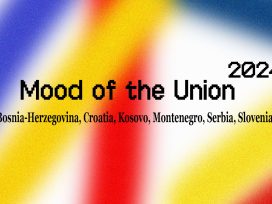
Balkan realities
Bosnia-Herzegovina, Croatia, Kosovo, Montenegro, Serbia, Slovenia
Since Russia’s full-scale invasion of Ukraine, the EU’s rhetoric on enlargement in the Western Balkans has taken an optimistic turn. Whether that continues depends on the European vote. But whatever the result, it is the political realities that count. And in the Balkans, these are far from consistently pro-European.

The climate of hostility in which the assassination attempt on Robert Fico took place has been a feature of Slovak politics for the past two decades. And Fico has played a decisive role in creating it. How the situation in Slovakia came about – and whether it will continue to deteriorate.
